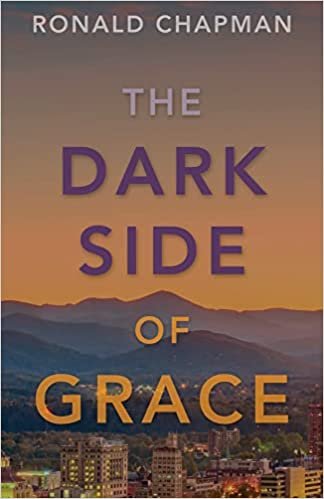Reflections
/Wonder in the World
Recently, my most excellent “handler,” Monique Inge, asked me what I had observed or learned as a result of six months of book touring to promote and discuss The Dark Side of Grace, the sequel to A Killer’s Grace. It was an interesting question, a great opportunity to reflect and perhaps to deepen my own understanding or awareness. (That’s why she’s a “handler,” she does not do my bidding, rather she steers me, which is precisely what an unbounded person like me needs!)
As background, the novels are woven around an investigative journalist, Kevin Pitcairn, who has a personal history with addiction and violence, who pursues challenging issues in working with his own life. In parallel, Maria Elena Maldonado, the love of his life, is a co-protagonist with her own story of spiritual restoration. The books have been called “psycho-spiritual thrillers,” and are intended to tell a compelling story while engaging provocative ideas on the cutting edge of our culture and our understanding. Click here to learn more.
First and foremost, I’m struck and impressed by a great well of desire to understand that animates so many people. And I guess, I’m also surprised by the great degree of curiosity that accompanies that. Most people are far less insistent than we might imagine, as long as we approach others and topics with a spirit of inquiry. I often hear from others, “Just don’t push me.” Simultaneously though there is a desire to delve more deeply.
For example, the number of people who really do want to wrestle with the ideas of “good” and “evil” is quite large. It’s a topic I’ve had to reconcile for myself, and about which I wrote my own manifesto. (How self-indulgent! And yet so necessary ... at least for me.) Click here to read the manifesto.
A crucial plot element in The Dark Side of Grace is Post Traumatic Growth, that the same things that may produce breakdown can produce breakthrough. And a key revelation in that investigation is the research that shows the zip code into which we are born is the most likely predictor of life success and fulfillment.
These ideas have engaged readers and discussion participants in most remarkable conversations. They tell me they are better for the challenges they present.
In parallel to these often-difficult subjects, so many people are voyeurs in one form or another. They want to know the titillating details behind the real-world serial killer with whom I corresponded and which forms the foundation for A Killer’s Grace, as well as the character development of Pitcairn. Many ask for the particulars of some of the more graphic plot devices, many of which are admittedly quite gnarly or dark. And quite frequently I’m asked which parts of the story are biographical, which can produce some vulnerable but valuable moments.
Most provocative to me though is the realization that each of us is weaving together our own storyline, though we are typically unaware of how we are doing so. We think life is happening through us, or around us, or to us, when in fact, life is us. We are not an object, nor is life static. We are an unfolding, that is emerging moment by moment, thought by thought, step by step. As a favorite character, Boboso the Bear, in my allegory, My Name is Wonder: A Tale of Adventure, observes: “The path is every step.”
Maybe then that is my largest and most enjoyable observation. Somehow, inexplicably, we are on a giant, psycho-spiritual playground – playing, discovering, and learning – even if we are unable to see it.
Viktor Frankl, the great psychologist and student of life and living, proposes that the whole point is to find meaning and purpose, and that nothing can take away the deepest meaning we each create for ourselves. What a wonderful, magical notion. That we are indeed the captains of our souls.
Seeing True in Reality and In Practice™
The path is made with every step. It does not pre-exist.
We are living out the path. The path is us, and we are it.
No one other than us can walk our path.
Yet we are never alone.
The path does not end.














